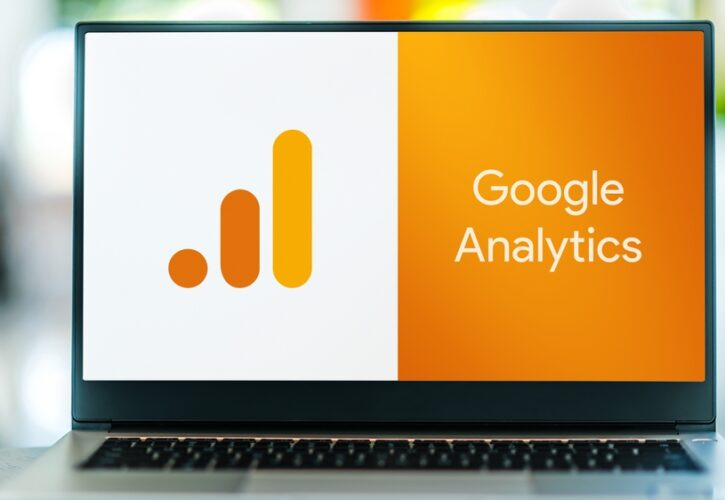
Google Analytics 4: There’s no time to wait
If you’ve not heard it already (where’ve you been?) Google has recently announced that Universal Analytics, for many the current de facto and GA4 (Google Analytics 4) predecessor, is being sunsetted. Despite the tropical beach imagery “sunset” may elicit, this means that from July 2023 Universal Analytics properties will cease to collect any data. No more time for lying on the beach, it’s time to sit up and pay attention.
The 15-month timeline for businesses not paying generously for GA360, which would “buy” an extra three months of data collection, is immediately pressing – if indeed yours is a business that heavily uses and relies on Google Analytics data for site behaviour insights, conversion or eCommerce data and interaction-based media performance reporting. Most obviously because in a world of comparative data, where performance is almost always related to sometime in the past, be that the previous day, week, month or year, June 2022 is fast approaching. If not set up and running by June, come July 2023 you won’t have like-for-like data to compare against the previous year. Ouch!
“But it’s still Google Analytics data, right, why the fuss?” I hear you cry. The change isn’t simply the latest iterative “model” of Google Analytics, in the way that this year’s G-wagon is an improvement on the last, it’s a whole other model altogether. Admittedly the car metaphor only goes so far here but you get the idea; they’re not really comparable. In brief, Universal Analytics (or GA3) has stood strong over the last 8 years; built on a now dated foundation of user sessions that are tied together leveraging cookies, which are getting ready for their own flavour of sunset. GA4 is underpinned by an events-based model, collecting each interaction with a site as an event, which the platform then attempts to tie together using IDs or user cues, more akin to that of Mobile Measurement Partners used for monitoring mobile app performance. This foundation is why it’s possible to see App and Web data in a single place within GA4, there’s a common data model. Importantly here, while there is a range of standard events that GA4 includes on initial setup such as; page view, first visit, session start, click, scroll, user engagement, file download and video view metrics you’re going to want to think about how to enrich this standard data with additional events, as well as the structure of those events relative to your site as a whole, given that the parameters captured alongside the event action itself are also defined by you.
There are plenty of benefits to GA4; the data model mentioned above being one of them, along with easily accessible data-driven attribution, the long-standing benefit of blending web + app data (and Google’s leveraging of their device graph to support connecting cross-device behaviours here), privacy compliance, Big Query integration previously only available to GA360 customers and the list goes on. The benefits themselves are not new.
A few other points to think about if you need more motivation to get a move on;
- It’s not possible to port data across from Universal into GA4.
- From a GTM perspective, for tracking setup, there’s not a single tag that rides off existing Universal tags, GA4 event tags would need to be defined and set up for each data point to collect.
- The user interface and route to custom reports take a bit of getting used to, it would benefit all who use Analytics to get accustomed to the interface, reporting and impact of event setup.
The fact of the matter is whether you are bought into the benefits of GA4 or not the choice you face is whether you get stuck in now, in anticipation of the inevitable future and setting in place the groundwork that pays off down the line or continue basking on that proverbial beach in blissful ignorance until the sun sets, you wake to darkness as the chill hits the air, stagger blindly into the ocean to be bitten by a sea krait or carried off by a riptide.
The chaos of May 2018, when GDPR was coming into effect, isn’t that far away that we would have forgotten the pain of waiting until the last minute. It was a painful time for both businesses and very irritated customers. Yes, this change won’t directly affect your customers per se but given the impact of analytics data on media plans, budget negotiations, content decisions, optimisation strategies etc. you can expect an impact on performance if you find yourself running blind.
Interested in how you get stuck into the groundwork and migrate over to GA4? Speak with us at [email protected] to learn how we can help.






